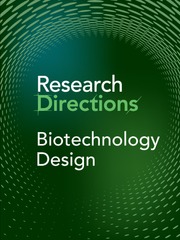Context
Biotechnology has the potential to solve some of the biggest problems that contribute to local and global inequalities. Thus, it is imperative to increase the participation of diverse communities in the development, implementation and adoption of biotechnology. Biotechnology has been applied as long as we have domesticated plants and animals, produced cheese, yogurt, bread and alcoholic drinks. Today, it is being used in numerous disciplines including medicine, bioremediation, agriculture, energy and material production. Artists and designers have had a role in challenging research and its societal questions. Education must prepare individuals for a future of complex challenges providing creative problem-solving and critical thinking skill as well as the ability to innovate in a technology-driven world. Furthermore, teacher pedagogies should allow students and teachers to critically debate the political, ethical and social issues from the practice of biotechnology. This question invites a wide range of research contributions in which we identify, evaluate and speculate on the role that multidisciplinary education has on the future of biotech. We invite both experimental works on the latest methodologies in this area but also critique and reflection beyond the ‘hype’ of these, potentially transformative pedagogical approaches.
Contributions
We invite contributions in the following areas:
Results
Empirical results on the implementation of programmes include the following:
-
Studies on the design and implementation of innovative multidisciplinary pedagogies and curricula in biotech education.
-
Studies that report on the incorporation of ethical and societal aspects of biotech into core biotechnology teaching.
-
Reports on problem-based learning approaches that incorporate successful biotech training to address context-based challenges.
-
Reports on the outcomes of implementation of technology-rich learning environments that foster biotech education to non-science majors.
Analysis
-
Reviews that present case studies or showcase evidence-based changes in a multidisciplinary biotech curriculum or pedagogical practices in different education systems around the world.
-
Multidisciplinary research and development through contributions that are empirically grounded and blend subject content expertise and educational endeavours.
-
Discussions of methods to improving student’s achievement in understanding biotech concepts, approaches used to motivate and engage students, and lessons learned from changes in curriculum and instruction in multidisciplinary biotech education.
Impact
-
Studies on translational biotech education that bridges research and educational policy and practice for biotech education improvement.
-
Studies on the destination of graduates for biotechnology programmes and/or entrepreneurial activities stemming from novel educational programmes.
-
Analysis of the economic and/or social benefits of biotechnology teaching including case studies of implemented projects or initiatives.
How to contribute to this Question
If you believe you can contribute to answering this Question with your research outputs find out how to submit in the Instructions for authors (https://www.cambridge.org/core/journals/research-directions-biotechnology-design/information/author-instructions/preparing-your-materials). This journal publishes Results, Analyses, Impact papers and additional content such as preprints and ‘grey literature’. Questions will be closed when the editors agree that enough content has been published to answer the Question so before submitting, check if this is still an active Question. If it is closed, another relevant Question may be currently open, so do review all the open Questions in your field. For any further queries, check the information pages (https://www.cambridge.org/core/journals/research-directions-biotechnology-design/information/about-this-journal) or contact this email ([email protected]).
Competing interests
The author(s) declare none.




